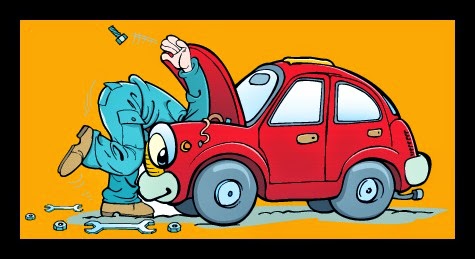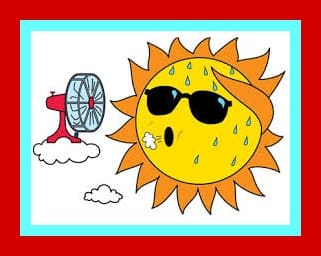Posted on 9/22/2014

From Residue to Running Like NewHow a Fuel System Cleaning Can Restore Your Engine Whether you put too much food down the garbage disposal (we prefer composting), too many leaves fall into the gutters or grandma's famous tuna casserole left your oven covered in an unknown greasy substance, things stop performing at their optimal level unless they're cleaned. The same is true for your car's engine. Residue gets left behind in your engine every time you turn off your car. Any time an engine shuts down, it goes through a 'hot soak'. A hot soak is when your engine is still producing heat and there is no air flowing through it to cool it down. During the 'hot soak' period, fuel residues become thin deposits called gum and varnish. with time, these this residues accumulate and bake into rock-hard carbon deposits, which can ... read more
Posted on 8/13/2014

Coolant System Explained (Part two of two)Last week we discovered a pool of ‘green blood’ under the car…Is it an Alien’s? As we learned in Coolant System Part 1, that "green stuff" is not some weird alien blood (although to some, a car may seem like an alien)! It is anti-freeze – also known as coolant. What does Coolant do? Coolant performs a number of important roles in keeping your vehicle on the road. Its primary function is to cool engine parts around the cylinder walls and cylinder head where your car’s fuel is burned; that is, where combustion takes place. The engine needs coolant circulating through it continually; without it, the combustion chambers reaches temperatures over 2,500 degrees Fahrenheit (RED HOT, in other words). Its secondary responsibilities are to heat the inside of your car (via the heater) and to keep corrosion from forming in the radiato ... read more
Posted on 8/6/2014

Coolant System Explained (Part one of two) Imagine; you've finished your food shopping, go out to put your groceries in your car and you notice a small river of green liquid oozing from underneath. “Yikes! Is that green stuff coming from my car???”There’s a pool of ‘green blood’ under my car…Is it an Alien’s?...Should I be concerned? That "green stuff" is not some weird alien blood (although to some, a car may seem like an alien)! It is anti-freeze – AKA coolant. GET THAT LEAK FIXED right away if you are concerned about keeping your car running, and or about keeping the environment and or animals safe! The loss of coolant often leads to overheating of your vehicle’s engine. Coolant smells and tastes sweet. We DO NOT recommend tasting your coolant – NEVER taste it – but you need to know that animals are attract ... read more
Posted on 7/31/2014

Summer is here and we love to travel to ‘hot’ places with our families. For example; there is much desert to be crossed to get to the Grand Canyon. No one wants to get caught with the hood up on the side of the road. This tends to raise the temperatures of more than the vehicle. Before your trip we suggest checking your vehicle with a pre-trip inspection. Ideally do this a week or two before your scheduled departure date. Special attention should be made to the Cooling System and the Air Conditioning System. Quick Factoid: Summer heat can send parts of your engine to nearly 200 degrees F – some engine bits can even reach 500 degrees, literally oven hot! NEVER open the radiator cap on a hot engine! Over- heating or not, the system has a lot of pressure in it. (Old Faithful is best viewed from a distance.) The easiest way for you to determine if your car is cooling properly is to get in the habit of looking at your car’s temper ... read more
Posted on 5/13/2014

ARE YOU HOT?! Air Conditioning Explained Your car's ‘skin’ of steel and glass is not only protective and beautiful, but it also attracts and stores a tremendous amount of solar (radiant) heat in the passenger compartment. Removing this trapped heat requires a very efficient system. The Air Conditioning (A/C) system is a combination of mechanical components plus a chemical medium (Freon – not a psychic) whose sole purpose is to move heat from the interior to the exterior of the vehicle. Your car’s air conditioner uses Freon Refrigerant to cool the air internally. Freon acts a lot like water. As liquid Freon warms up it evaporates into a gaseous state (vapor), and then, as it cools down, becomes liquid again. As the Freon changes from a liquid to a vapor it heats and cools the air. What path does Freon take ... read more